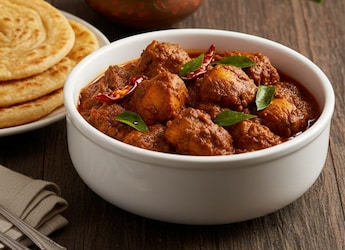As much as the pouring raindrops and the gorgeous weather bring relief and joy, they also create an environment favourable for various infections and illnesses. Strengthening our immune system becomes crucial during the monsoon to ward off potential health concerns. One effective way to support our immune system is by incorporating alkaline foods into our diet. Alkaline foods are known for their ability to balance pH levels in the body and promote overall well-being. The good thing is, there is a variety of alkaline foods that can help improve your immunity during the monsoon season.
What Is an Alkaline Diet?
All foods can be divided into acidic, neutral, or alkaline. What we eat impacts the pH value (the measurement of acidity or alkalinity) of our body. When food is digested, it can leave an acidic, alkaline, or neutral residue. Acidic residue can harm health, but alkaline residue benefits in many ways, including building immunity.
According to the Clinical Oncology Journal, "We would intuitively consider lemon acidic because it has a sour taste and the ability to erode our tooth enamel. However, once it has been metabolized by the body, lemon leaves the blood alkaline. This explains why a seemingly acidic food can 'turn' alkaline in the body."
Also Read: Benefits Of Alkaline Water: Health Benefits, How To Make Alkaline Water And Its Side Effects
Photo Credit: iStock
What Are the Top Alkaline Foods? Here are 8 Foods That Help Build Immunity:
1. Citrus Fruits:
Citrus fruits like lemons, oranges, and grapefruits contain a great amount of vitamin C, which is known as a powerful antioxidant that helps strengthen the immune system. It stimulates the production of white blood cells, which prevents infections and illnesses. The alkalizing properties of citrus fruits help maintain a healthy pH balance in the body. Check out our list of foods with high vitamin C content.
2. Berries:
Strawberries, blueberries, raspberries, mulberries - berries are not only delicious but are also packed with antioxidants that promote immune health. They are low in sugar and high in fiber, making them a perfect choice for maintaining a healthy pH balance during the monsoon.
3. Green Leafy Vegetables:
Dark leafy greens like spinach, fenugreek leaves, and cabbage are highly alkaline. These greens are also rich in vitamins A, C, and K, as well as minerals like iron and calcium. Including leafy greens in your diet can help boost immunity, improve digestion, and provide a host of other health benefits. Here are some must-have leafy greens in your diet.
Photo Credit: iStock
4. Garlic:
Garlic has been used for centuries as a natural remedy for various ailments. It contains a compound called allicin, which has antimicrobial and immune-boosting properties. Adding garlic to your meals not only enhances flavour but also helps fortify your immune system.
5. Onions and Tomatoes:
These two foods are essential ingredients used as a base for most dishes. They also add their flavours and health-benefiting alkaline properties to our food. Combined with antioxidants, onions and tomatoes help bolster our immunity.
During the monsoon season, maintaining a strong immune system becomes vital to protect ourselves from common infections and illnesses. Incorporating alkaline foods into your diet can help you achieve this goal.
Disclaimer: This content including advice provides generic information only. It is in no way a substitute for qualified medical opinion. Always consult a specialist or your own doctor for more information. NDTV does not claim responsibility for this information.
(This content including advice provides generic information only. It is in no way a substitute for qualified medical opinion. Always consult a specialist or your own doctor for more information. NDTV does not claim responsibility for this information.)
